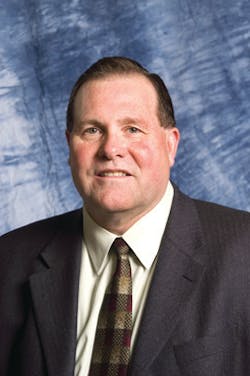Much of the political rhetoric we hear today seems to revolve around what Democrats, Republicans, independents and others refer to as their guiding “principles.” The dictionary defines “principle” as “an accepted or professed rule of action or conduct; a basic law, axiom or doctrine; a personal or specific basis of conduct or operation; or a guiding sense of the requirements and obligations for right conduct.”
The term may be overused, because I’m often led to believe that what some refer to as their “principles” are nothing more than opinions. Bottom line, there doesn’t seem to be a set of clearly defined principles that members of any political party understand and agree to follow. On the other hand, “value” is defined as “the ideals, customs or institutions of a given society, group or individual.” It is interesting how many organizations have never devoted the time and effort required to clearly define their values. Yet, values and principles combined tend to drive the behavior and performance of individuals or groups.
Respect must be earned
The close relationship between values and principles, and whether members of a group actually buy into them, offers a strong basis for the degree of respect that people tend to have for another individual or group. Mutual respect is a key factor in political effectiveness and is an anchor in the level of political and public support enjoyed by the fire service.
“Culture” is defined as “the sum total of ways of living built up by a group of human beings and transmitted from one generation to another.” The culture of an organization is present everywhere in the system and basically defines the environment within which performance and behavior are acted out within a group.
It is often insinuated that there is a single fire service culture, but I have not found that to be the case. My dealings with many fire departments throughout the country have taught me that each one (essentially) has its own unique culture. Each also has its own set of values. However, fire departments throughout the country share common principles. The way in which these principles are acted out by a fire department (day in and day out) has a lot to do with the level of respect it receives from people outside the department – and they affect the level of political and public support a department enjoys (or doesn’t enjoy).
Following are guiding principles I have found within fire departments:
• A focus on saving lives and property. This should be built on a strong foundation of training, as well as a commitment to the safety of their community and the survival of one another (the firefighters).
• A strong sense of identity as a firefighter. This should include pride in the fire department and a commitment to maintaining a positive, productive attachment to the responsibilities of the position.
• Emphasis on teamwork, camaraderie and compassion. These are usually displayed in the way firefighters are connected emotionally. Healthy relationships with one another are critical, and must be complemented by members’ expectations of quality leadership, strong supervision and well-thought-out decision-making.
• Courage and the acceptance of personal risk. These should be acted out within a standard risk profile and an on-scene evaluation by officers relating to the potential gain that can be derived from taking specific risks strategically, tactically and at the task level.
These principles are present in the performance of fire department members in many ways. They are admired by people outside the department and, therefore, can drive a certain level of respect.
The terms culture, values and principles are often misused and confused. They are related, but are not synonymous. There is not a single fire service culture or set of values, but there are consistent principles present in fire departments that play a significant role in driving performance and behavior. Public support and political support are important to the fire service. Both are often impacted by the guiding values and principles of the firefighters themselves.
If you have not identified your organizational values, do so now. Never lose sight of what created public support for the fire service in the first place. It is the result of the performance of firefighters and the level of respect built over time.
For more news and training on fire service politics, visit: http://www.firehouse.com/topics/politics-law.
DENNIS COMPTON, a Firehouse® contributing editor, is a speaker and the author of Progressive Leadership Principles, Concepts and Tools, the When in Doubt, Lead! books, the book Mental Aspects of Performance for Firefighters and Fire Officers, and many articles, chapters and other publications. He was the fire chief in Mesa, AZ, for five years and assistant fire chief in Phoenix, where he served for 27 years. Compton is past chairman of the Executive Board of the International Fire Service Training Association (IFSTA) and past chairman of the Congressional Fire Services Institute’s National Advisory Committee. He is currently chairman of the National Fallen Firefighters Foundation Board of Directors.
About the Author

Dennis Compton
Chief
DENNIS COMPTON is a well-known speaker and the author of several books, including his most recent offering titled Progressive Leadership Principles, Concepts and Tools. He also authored the three-part series of books titled When in Doubt, Lead, the book Mental Aspects of Performance for Firefighters and Fire Officers, as well as many articles, chapters and other publications. Compton was the fire chief in Mesa, AZ, for five years and an assistant fire chief in Phoenix, where he served for 27 years. He is past chairman of the Executive Board of the International Fire Service Training Association (IFSTA) and past chairman of the Congressional Fire Services Institute (CFSI) National Advisory Committee. Compton is currently the chairman of the National Fallen Firefighters Foundation (NFFF) Board of Directors and co-chairs the Fire Service-Based EMS Advocates Steering Committee.
